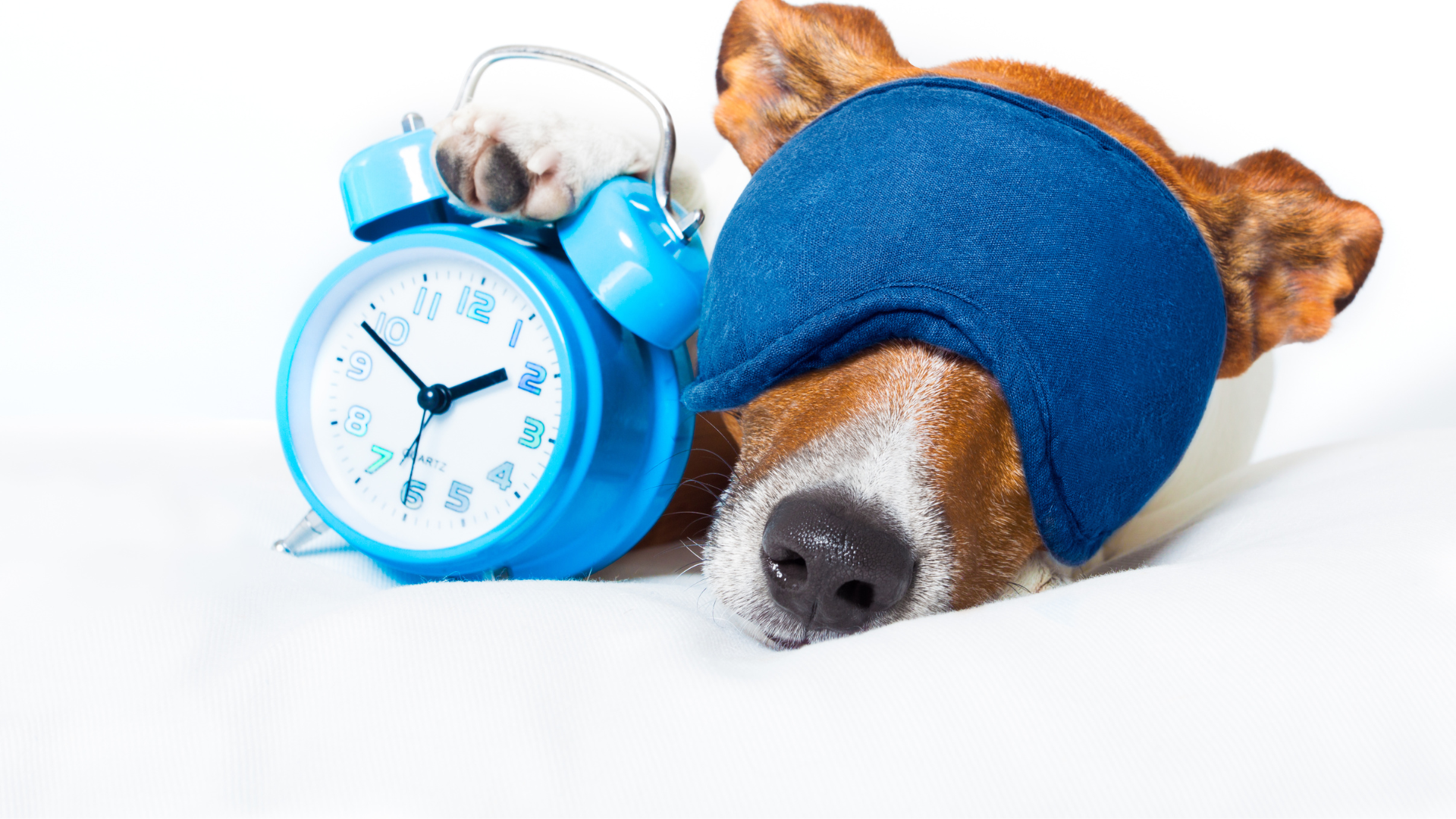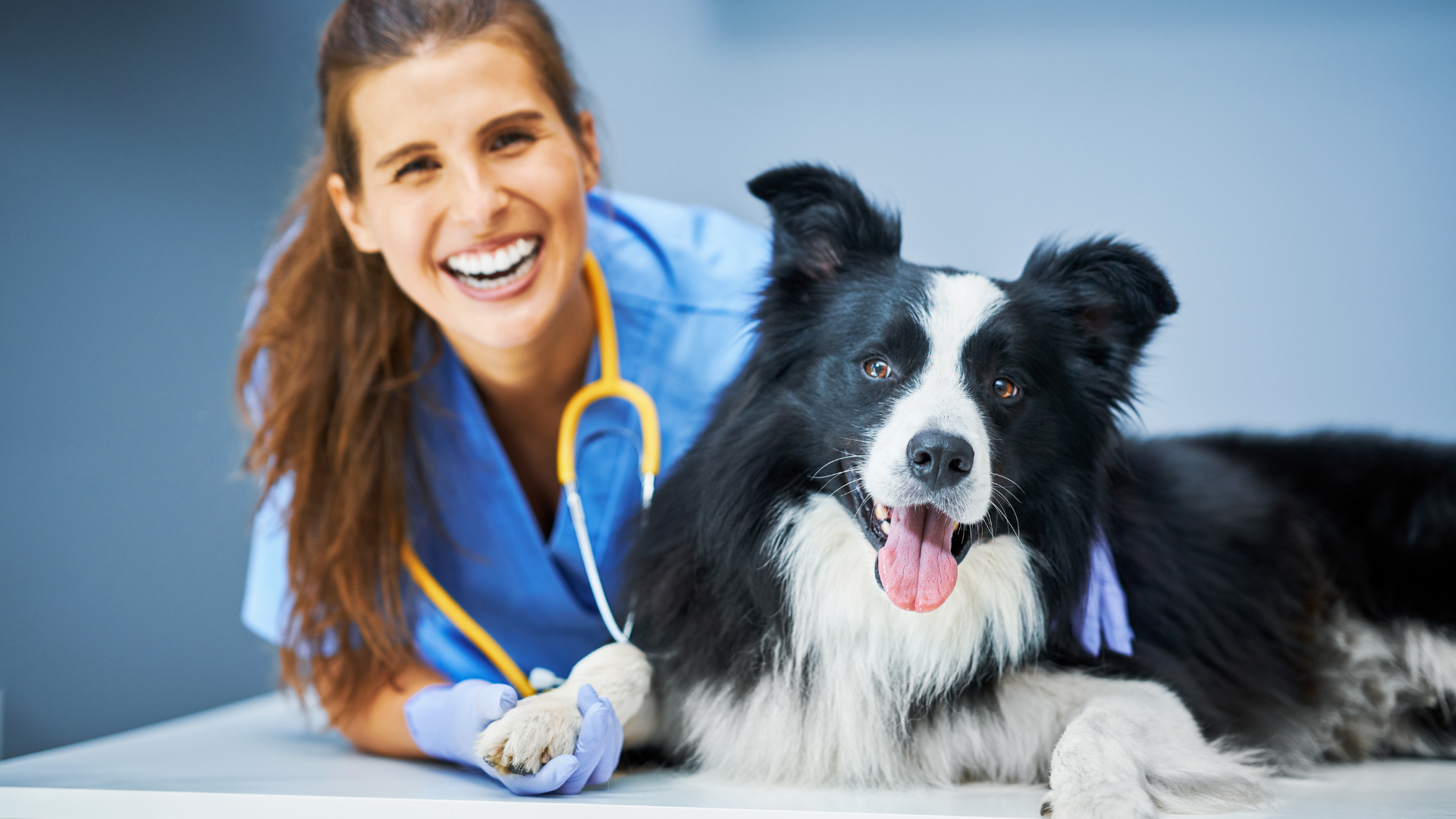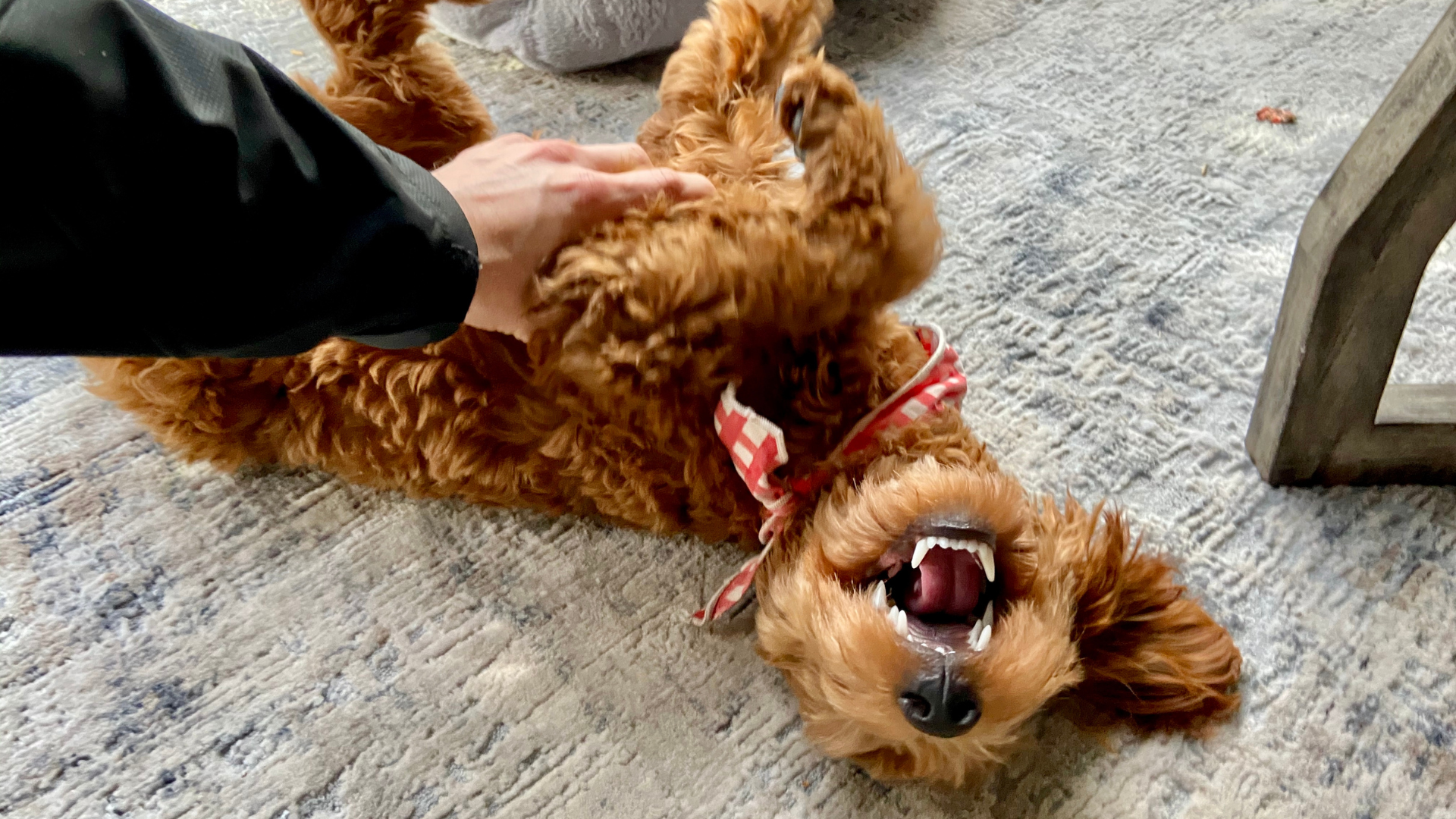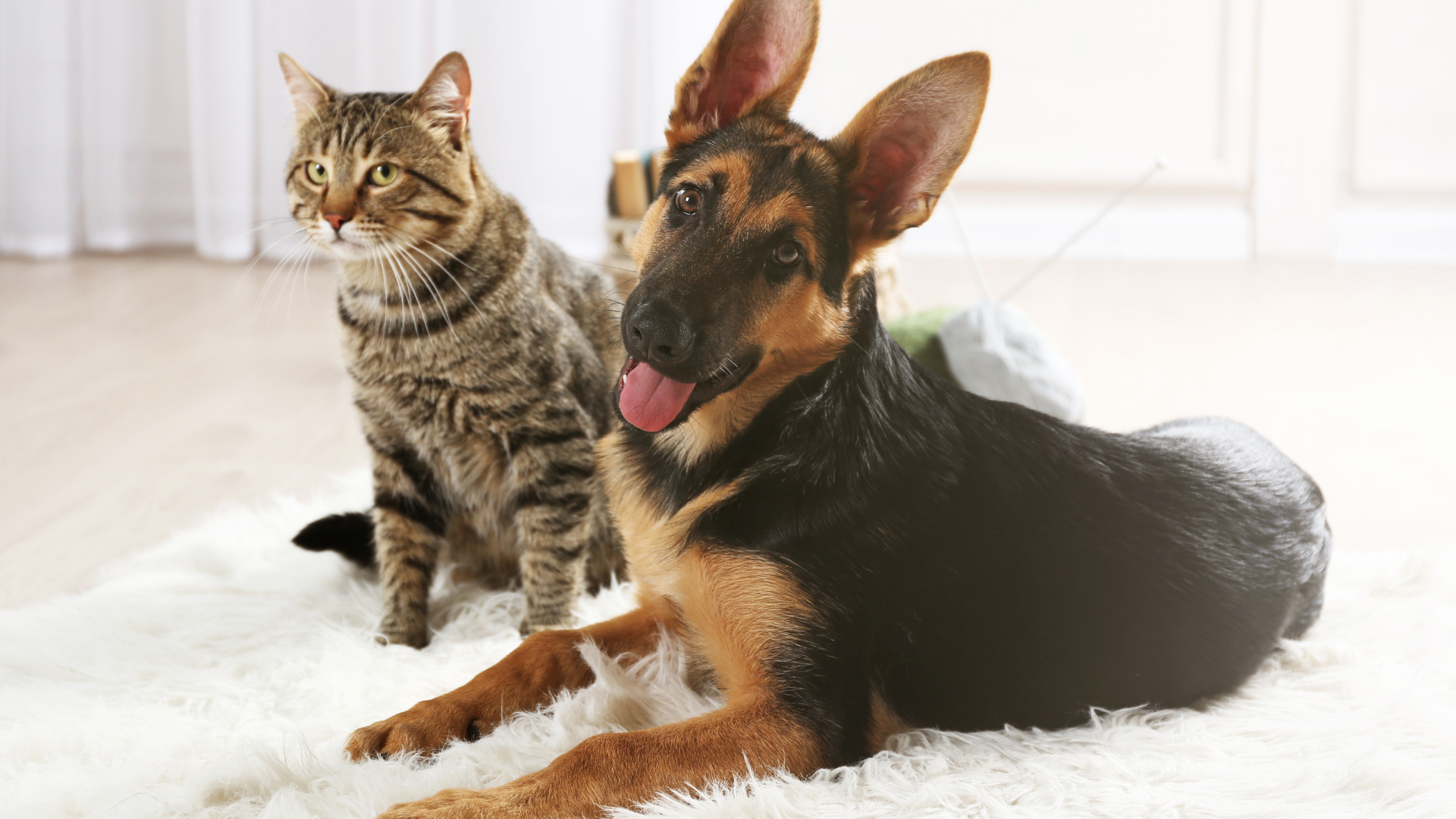As pet owners, we often find ourselves wondering about our dogs' sleeping habits, especially when they seem to be restless or startled during the night. One of the most common concerns is whether dogs experience nightmares, and if so, what those nightmares mean and how we can help them. Understanding the nature of dog nightmares and their causes can not only ease our minds but also improve our pet's overall well-being. In this first part of the blog, we'll explore what dog nightmares are, why they occur, and what they might mean for your dog's health and behavior.
Do Dogs Have Nightmares?
The short answer is yes—dogs can experience nightmares. Like humans, dogs go through different stages of sleep, including Rapid Eye Movement (REM) sleep, which is the phase most closely associated with dreaming. During REM sleep, your dog’s brain is highly active, and their body may exhibit signs of movement, such as twitching paws, vocalizing, or even jerking. This is often when dogs experience the most vivid dreams or nightmares.
A dog having a nightmare might exhibit distressing behaviors such as whimpering, growling, or even barking in their sleep. Some dogs may also thrash or move their legs as if they are running or chasing something. Just as humans can have bad dreams, dogs can experience dreams that cause them discomfort or fear, especially if they have experienced stress, anxiety, or trauma in their lives.
What Are Dog Nightmares?
Dog nightmares are dreams that cause your dog distress, often leading them to vocalize or move their body in a way that reflects the emotional turmoil they may be experiencing in the dream. While dogs can dream about positive things, such as playing or interacting with their owners, nightmares typically involve situations that evoke fear or anxiety, such as being chased, trapped, or experiencing separation from their owner.
Much like human nightmares, dog nightmares are a natural part of the sleep cycle. During REM sleep, the brain is processing emotions, memories, and experiences, and this can sometimes lead to unsettling dreams. While we cannot know exactly what our dogs are dreaming about, their behavior during sleep can give us clues about the emotional state of the dream.
If your dog is prone to nightmares, you may notice that they seem more restless during their sleep, or they might wake up startled, disoriented, or even frightened. It’s important to observe these behaviors closely to ensure your dog is comfortable and not suffering from deeper anxiety or stress.
Why Do Dogs Have Nightmares?
Understanding why dogs have nightmares involves considering several factors, including their experiences, environment, and mental health. Dogs, much like humans, can be affected by stress, anxiety, and past trauma, which can influence their sleep patterns and dreams.
Stress and Anxiety
Dogs that experience high levels of stress or anxiety, whether from past traumatic experiences or ongoing environmental factors, may be more likely to have nightmares. This can include dogs who have been through abuse, abandonment, or major changes in their lives, such as moving to a new home or experiencing the loss of a family member.
Dogs that are stressed may also have more vivid or unsettling dreams due to heightened emotions. For example, a dog that has separation anxiety may dream about being left alone or separated from their owner, leading to nightmares that mirror their real-life fears.
Environmental Factors
The environment in which your dog sleeps plays a major role in their sleep quality. If your dog sleeps in a noisy or chaotic environment, they may have a more difficult time relaxing and entering a restful sleep. Unfamiliar sounds, such as traffic, fireworks, or loud household activities, can contribute to feelings of unease that manifest in their dreams.
Creating a peaceful, safe, and quiet space for your dog to sleep in can help reduce their stress levels and improve their overall sleep quality. A calm and secure sleeping environment is crucial for helping your dog get the restful sleep they need to avoid nightmares.
Genetics and Breed
Just like people, dogs have unique temperaments, and some breeds are more predisposed to anxiety and sleep disturbances than others. Dogs with nervous or anxious personalities may be more prone to having nightmares due to their heightened sensitivity to their environment and experiences.
Certain breeds, such as Border Collies, Greyhounds, and German Shepherds, are known to be more prone to stress and anxiety. These dogs may experience more intense dreams, including nightmares, due to their heightened awareness and sensitivity to changes in their surroundings.
What Do Dog Nightmares Mean?
While we can’t know exactly what’s going on in our dogs’ dreams, there are some theories about what dog nightmares might signify. Just as human nightmares often reflect our unresolved fears, anxieties, or past trauma, dog nightmares may be an expression of the same emotional struggles.
Fear and Anxiety
A common theme in dog nightmares is fear. Dogs who have experienced traumatic events, such as abuse or neglect, may dream about those experiences or relive the fear associated with them. Nightmares may also reflect a dog's general anxiety, such as fear of abandonment or being alone. A dog with separation anxiety, for example, may have nightmares related to being left behind or separated from their owner.
Insecurity or Uncertainty
Dogs that feel insecure in their environment may have nightmares that reflect their emotional instability. This could include dreams about being lost, trapped, or unable to find their way home. A dog that is uncertain about its surroundings, such as in a new home or a stressful situation, may experience nightmares that mirror these feelings of insecurity.
Unresolved Trauma
Just as some human nightmares stem from unresolved trauma, dogs may experience nightmares that are a manifestation of past experiences that were emotionally traumatic. Dogs who have been adopted from shelters or those that have experienced neglect or abuse may have dreams that reflect those painful memories. Nightmares may serve as a way for the dog’s brain to process these unresolved emotions.
Common Nightmares in Dogs and What They Could Mean
While we can’t know exactly what our dogs are dreaming about, there are some common nightmares that dogs may experience. Some of the most frequent nightmares in dogs include:
-
Being Chased: This is one of the most common dreams for dogs and can represent fear or a sense of danger. Dogs who have been in situations where they felt threatened, such as being attacked or chased, may experience nightmares that mirror this fear.
-
Separation Anxiety: Dogs with separation anxiety may dream about being left behind or unable to find their owner. These nightmares can be particularly distressing for dogs who are closely bonded with their owners.
-
Frightening Noises or Situations: Dogs that are sensitive to loud noises, such as thunderstorms or fireworks, may dream about those sounds or experiences. These types of nightmares can be a reflection of the dog’s fear of those noises.
-
Loss of Control: Some dogs may experience nightmares that involve losing control, such as being trapped in a confined space or being unable to escape from a dangerous situation. This could reflect feelings of helplessness or fear of not being able to protect themselves.
Do All Dogs Experience Nightmares?
Not all dogs experience nightmares. Like humans, dogs have different sleep patterns, and while some may experience vivid dreams or nightmares, others may sleep more deeply without any apparent disturbance. It’s important to note that the frequency and intensity of nightmares can vary based on the dog’s personality, breed, and environment.
Puppies, for example, may experience more frequent dreams as they process their new experiences, while older dogs may have fewer nightmares if their environment has remained stable and stress-free. Additionally, some dogs are simply better sleepers and may not experience nightmares as often as others.
If you notice that your dog is having frequent nightmares, it may be helpful to monitor their behavior and assess whether there are any underlying stressors or anxieties that need to be addressed.
How to Calm a Dog Having a Nightmare
When your dog is having a nightmare, it can be distressing for both of you. While it’s tempting to wake your dog up, it's important to do so gently and carefully. Abruptly waking a dog in the middle of a nightmare can startle them, potentially making them feel more anxious or disoriented.
Instead of waking your dog, try to comfort them with a soothing voice or gentle touch. Speak in a calm, reassuring tone, and if your dog is open to it, gently stroke their back or pet them in a way that helps them feel safe. If your dog wakes up during the nightmare, allow them a few moments to calm down before approaching them.
You can also use a familiar object or sound to help ease their transition back to a state of calm. For example, you might have a favorite blanket or toy nearby that offers comfort or use a calming sound, like a white noise machine, to create a soothing atmosphere.
Reducing Stress in Dogs to Prevent Nightmares
Reducing overall stress and anxiety in your dog is one of the most effective ways to prevent nightmares from occurring in the first place. Dogs with high levels of anxiety are more likely to experience restless sleep and nightmares, so finding ways to manage their stress can improve their sleep quality and reduce nightmares.
Exercise and Mental Stimulation
Regular exercise is essential for your dog's physical and mental well-being. A tired dog is less likely to experience anxiety or restlessness, making it easier for them to sleep soundly at night. Ensure your dog gets enough physical activity during the day to help burn off excess energy.
In addition to physical exercise, mental stimulation is equally important. Interactive toys, puzzle feeders, and training exercises can help engage your dog’s mind and reduce stress. If your dog is mentally stimulated throughout the day, they’re more likely to feel relaxed and secure when it’s time to sleep.
Creating a Relaxing Environment
A peaceful, secure environment is key to reducing stress in your dog and promoting restful sleep. Consider setting up a designated sleeping area that’s quiet, cozy, and free from distractions. This space should be away from the hustle and bustle of daily life, so your dog feels secure and undisturbed during sleep.
In addition to creating a quiet space, keep the environment free from triggers that might contribute to stress. For example, minimize loud noises or sudden changes in your dog’s surroundings that might lead to anxiety.
A clean environment also contributes to overall well-being. Using pet-safe cleaning products, such as All-Purpose Cleaners, ensures that your home remains fresh and free from harsh chemicals that can disrupt your pet’s sensitive respiratory system.
How to Use Calming Products for Dogs
For dogs that experience nightmares due to anxiety or stress, calming products can offer a great way to help them feel more relaxed. There are several calming products available, including treats, sprays, and diffusers, which can aid in reducing anxiety and promoting better sleep.
Calming Treats and Supplements
Many pet stores offer calming treats that contain natural ingredients like chamomile, valerian root, or CBD oil. These treats can help soothe your dog’s nerves and promote a sense of calmness, which may reduce the occurrence of nightmares. If your dog is particularly anxious, consider giving them a calming treat before bedtime to help them wind down.
Calming Sprays and Diffusers
There are also calming sprays and diffusers designed specifically for pets. These products often contain natural scents like lavender, chamomile, or valerian that help reduce anxiety. You can spray these calming products on your dog’s bed or use a diffuser to disperse the soothing aroma throughout the room. These products work by creating a calming environment that helps your dog feel safe and secure during sleep.
If you’re looking for a safe, effective way to keep your home calm, All-Purpose Cleaners from Good Natured Brand can help maintain a pet-friendly atmosphere by ensuring your home is free of harsh chemicals and pollutants.
Pet-Safe Essential Oils
Certain essential oils can be beneficial for calming anxious dogs, but it’s important to choose oils that are safe for pets. Lavender and chamomile are well-known for their soothing properties, and many pet owners use them to help calm their dogs before bedtime. Make sure to use essential oils in moderation and always dilute them to avoid overwhelming your dog’s sensitive senses.
Creating a Dog-Friendly Sleep Space
A comfortable and secure sleep space is one of the most effective ways to reduce nightmares and promote restful sleep for your dog. Just like humans, dogs need a peaceful, cozy spot to relax and unwind at the end of the day.
Comfortable Bedding
Choose soft, comfortable bedding for your dog’s sleep area. Memory foam beds are a great option for providing extra support, especially for older dogs or those with joint issues. Ensure that the bedding is large enough for your dog to stretch out and feel comfortable. If your dog prefers to sleep in a specific position, provide enough space for them to lie comfortably.
Additionally, consider using calming mats or blankets that promote a sense of security. These calming materials can provide your dog with a sense of safety and help them feel more at ease during sleep.
Reduce Stress in the Sleep Area
Make the sleep area a peaceful sanctuary by keeping it free from distractions and stressors. Limit the noise in the area, and if necessary, use earplugs or a white noise machine to mask any sounds that might startle your dog.
If your dog’s sleep space is on a carpeted area, consider using Carpet Deodorizers to ensure that it remains fresh and odor-free. Keeping the space clean will make it more inviting and comfortable for your dog, further promoting relaxation and better sleep quality.
Behavioral Training to Address Anxiety and Nightmares
In some cases, nightmares may be linked to behavioral issues, such as separation anxiety or fear-based behaviors. If your dog’s nightmares are a result of anxiety, training and behavior modification may be necessary to help them feel more secure.
Positive Reinforcement
Positive reinforcement is an effective way to modify your dog’s behavior and reduce anxiety. Rewarding your dog for calm behavior, especially when they’re in their sleep area, can help them associate their bed or crate with positive experiences. Over time, this will make your dog feel more at ease and less likely to experience anxiety-driven nightmares.
Addressing Separation Anxiety
Dogs with separation anxiety are more likely to experience nightmares related to being separated from their owners. If this is the case for your dog, it’s important to work on reducing separation anxiety through gradual desensitization and positive reinforcement. Start by leaving your dog alone for short periods of time and gradually increasing the duration. Use calming products like calming sprays or treats during these times to help ease the process.
When to See a Veterinarian About Dog Nightmares
While occasional nightmares are normal, frequent or severe nightmares may be a sign of underlying health issues. If your dog’s nightmares are persistent or causing them significant distress, it may be time to consult a veterinarian.
Some medical conditions, such as pain, neurological disorders, or sleep disorders, can cause sleep disturbances and nightmares in dogs. A veterinarian will be able to rule out any medical conditions and provide guidance on how to manage your dog’s nightmares.
If your dog’s nightmares are impacting their quality of life, don’t hesitate to seek professional advice to ensure your dog is happy, healthy, and getting the rest they need.
Helping Your Dog Sleep Soundly
Helping your dog overcome nightmares is about providing a safe, secure, and calming environment for them to rest. By reducing stress, creating a peaceful sleep space, and using calming products, you can significantly improve your dog’s sleep quality and reduce the frequency of nightmares. Regular exercise, mental stimulation, and behavioral training can also play a big role in promoting restful sleep.
Remember, consistency is key. With time and patience, you can help your dog sleep soundly through the night and wake up feeling refreshed and relaxed. And by using pet-friendly products like Laundry Powders and Carpet Deodorizers, you can create a comfortable and fresh environment that contributes to your dog’s well-being.


















